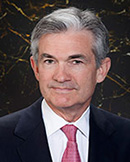Credit Card Debt Update from Federal Reserve Bank of New York Report
Driven by mortgage and auto balances, total household debt increased in Q1 2022, as
mortgage and auto loan originations subsided after historically high volumes seen in 2021. This according to The Federal Reserve Bank of New York’s Center for Microeconomic Data issued its Quarterly Report on Household Debt and Credit on May 10, 2022. The Report, according to a summary news release, shows a solid increase in total household debt in the first quarter of 2022, increasing by $266 billion (1.7%) to $15.84 trillion. Balances now stand $1.7 trillion higher than at the end of 2019, before the COVID-19 pandemic. The report, summarized below, is based on data from the New York Fed’s nationally representative Consumer Credit Panel.
 Mortgage balances rose by $250 billion in the first quarter of 2022 and stood at $11.18 trillion at the end of March. In line with seasonal trends typically seen at the start of the year, credit card balances declined by $15 billion. Credit card balances are still $71 billion higher than Q1 2021 and represent a substantial year-over-year increase. Auto loan balances increased by $11 billion in the first quarter, while student loan balances increased by $14 billion and now stand at $1.59 trillion. In total, non-housing balances grew by $17 billion.
Mortgage balances rose by $250 billion in the first quarter of 2022 and stood at $11.18 trillion at the end of March. In line with seasonal trends typically seen at the start of the year, credit card balances declined by $15 billion. Credit card balances are still $71 billion higher than Q1 2021 and represent a substantial year-over-year increase. Auto loan balances increased by $11 billion in the first quarter, while student loan balances increased by $14 billion and now stand at $1.59 trillion. In total, non-housing balances grew by $17 billion.
Mortgage and auto loan originations both declined in the first quarter, after historically high volumes in 2021. Mortgage originations were at $859 billion, representing a decline from the high volumes seen during 2021, yet still $197 billion higher than in Q1 2020, right before the pandemic hit the United States. Aggregate limits on credit card accounts increased by $64 billion and now stand at $4.12 trillion–$224 billion above the pre-pandemic level.
“The first quarter of 2022 saw an increase in mortgage and auto loan balances coupled with a typical seasonal decrease in credit card balances,” said Andrew Haughwout, Director of Household and Public Policy Research Division at the New York Fed. “However, mortgage originations declined from the historically high volumes seen in 2021, reflecting an unwinding in the demand for refinances.”
Further, the delinquency transition rate for credit cards increased by 0.2 percentage point, while mortgages, auto loans, and home equity lines of credit all saw 0.1 percentage point increases. Although the number of new foreclosures remains very low, there was a small uptick in new foreclosures in Q1 2022.
Overarching trends from the report’s summary include:

Housing Debt
There was $859 billion in newly originated mortgage debt in Q1 2022, with 68% of it originated to borrowers with credit scores over 760. Two percent of newly originated mortgages were originated to subprime borrowers, a sharp contrast to the 12% average seen between 2003-2007.
About 24,000 individuals had a new foreclosure notation added to their credit reports during the first quarter, compared to only 9,000 individuals in the fourth quarter of 2021, reflecting the partial resumption on new foreclosures. The share of mortgage balances 90+ days past due remained at 0.5%, a historic low.

Student Loans
Outstanding student loan debt stood at $1.59 trillion in Q1 2022, a $14 billion increase from Q4 2021. About 5% of aggregate student debt was 90+ days delinquent or in default in Q1 2022. The lower level of student debt delinquency reflects a Department of Education decision to report current status on loans eligible for CARES Act forbearances.

Account Closings, Credit Inquiries and Collection Accounts
The number of credit inquiries within the past six months – an indicator of consumer credit demand – was at 109 million, a 5.1% decline from the previous quarter. 229 million new accounts were opened in the first quarter, an uptick from the previous quarter and slightly higher than typical pre-pandemic levels.
About the Report

The Federal Reserve Bank of New York’s Household Debt and Credit Report provides unique data and insight into the credit conditions and activity of U.S. consumers. Based on data from the New York Fed’s Consumer Credit Panel, a nationally representative sample drawn from anonymized Equifax credit data, the report provides a quarterly snapshot of household trends in borrowing and indebtedness, including data about mortgages, student loans, credit cards, auto loans and delinquencies.
Senate Confirms Fed Leadership

Federal Reserve Chair Jerome Powell has been confirmed by the Senate for a second term. On May 12, 2022, the Senate voted 80-19 to give Powell a second four-year run at the central bank’s helm.
Powell took office as Chair of the Board of Governors of the Federal Reserve System on February 5, 2018, for a four-year term. On February 4, 2022, the Federal Reserve Board named Jerome H. Powell as Chair Pro Tempore, pending Senate confirmation to a second term as Chair of the Board of Governors, which was voted on in the Senate on May 12, 2022.
Mr. Powell also serves as Chairman of the Federal Open Market Committee, the System’s principal monetary policymaking body. Mr. Powell has served as a member of the Board of Governors since taking office on May 25, 2012, to fill an unexpired term. He was reappointed to the Board and sworn in on June 16, 2014, for a term ending January 31, 2028.
Also, the Senate confirmed Dr. Lisa Cook, an economist, to serve on the Federal Reserve Board on May 10, 2022. Dr. Cook is the first Black woman to ever serve on the Fed Board in its history. Dr. Cook holds a PhD in economics from the University of California, Berkeley. She graduated from Spelman College, where was a Truman Scholar, and the first graduate of the school to earn a Marshall Scholarship, which paid for her to study at Oxford University where she earned a second degree. Her professional background includes years of research and international experience on monetary policy, banking, and financial crises.
Dr. Cook is a tenured professor of economics and international relations at Michigan State University. She has spent most of her career in academia with stints in government, serving as an economist under Administrations of both parties, having held visiting positions at Federal Reserve banks of Minneapolis, New York and Philadelphia and the National Bureau of Economic Research. She joined the Chicago Fed Board of Directors in January.
Dr. Cook fills a position last held by Treasury Secretary Janet L. Yellen, who left her seat on the board in 2018. The term expires in January 2024 and Cook would be eligible for a second term.
In related news, the Federal Reserve Bank of Dallas announced on May 12, 2022, the appointment of Lorie K. Logan as president and chief executive officer. In this role, Logan will represent the Eleventh Federal Reserve District on the Federal Open Market Committee in the formulation of U.S. monetary policy and will lead the 1,200 employees of the Dallas Fed.
She will begin her role as president on August 22, 2022.
Logan, 49, currently serves as manager of the System Open Market Account for the FOMC, where she oversees the System’s $9 trillion securities portfolio and leads the implementation of monetary policy as directed by the FOMC. Logan also serves as executive vice president of the Federal Reserve Bank of New York, where she has led Market Operations, Monitoring and Analysis since 2012.






